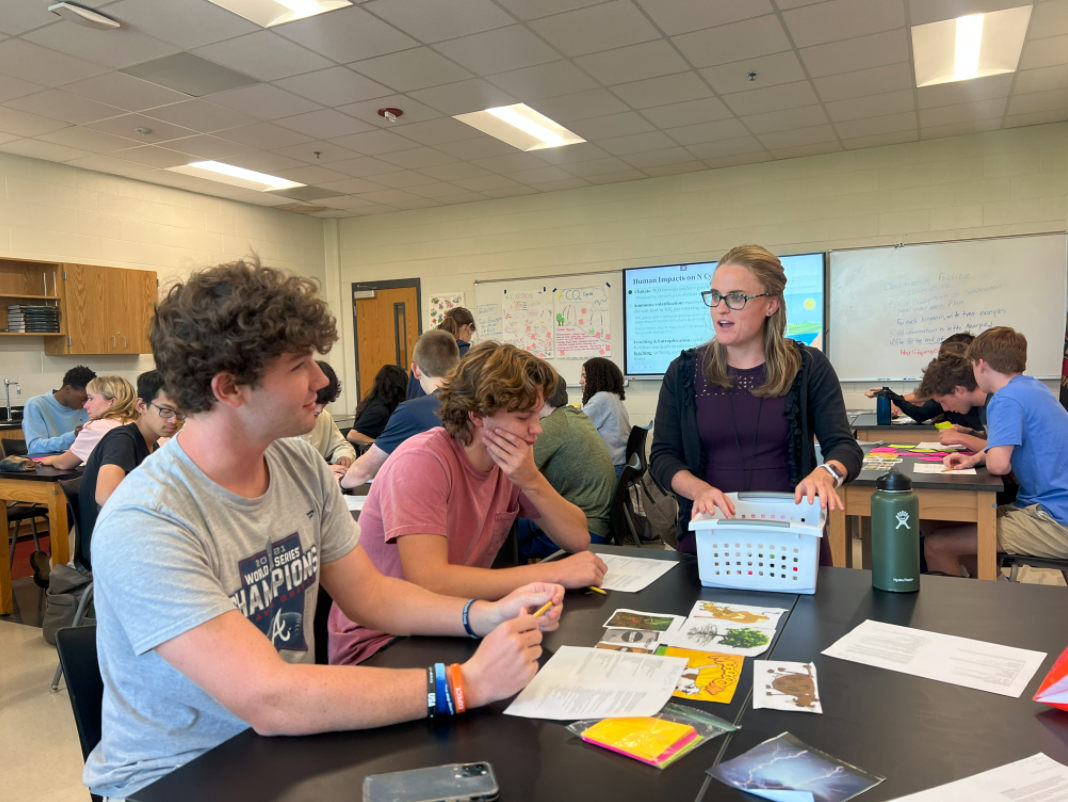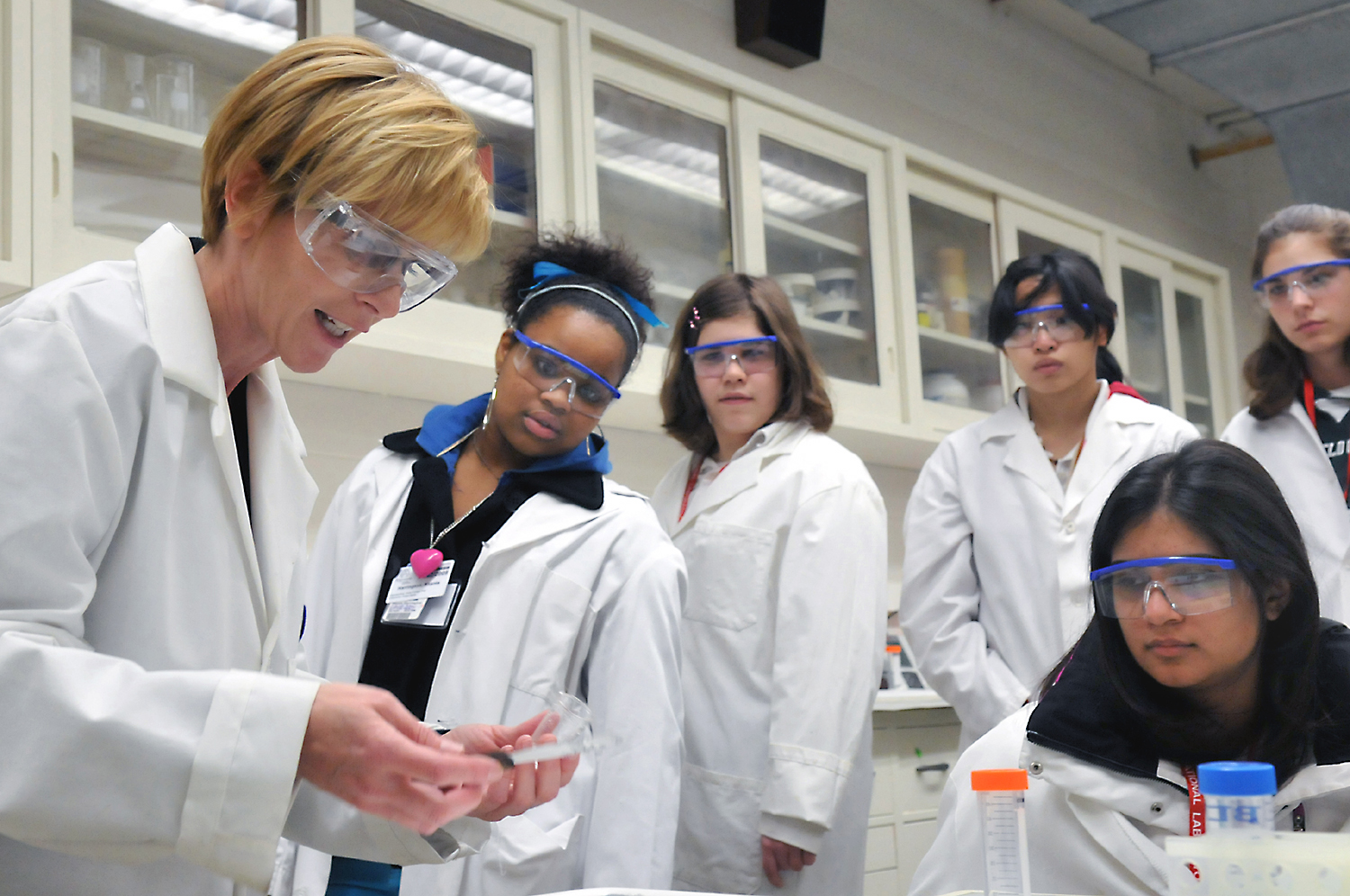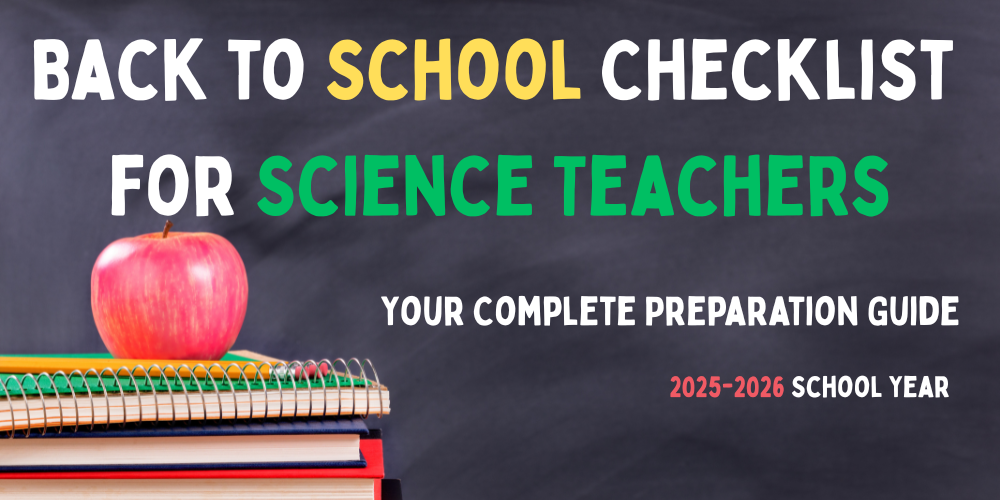
Back to School Checklist for Science Teachers: Your Complete Preparation Guide
Share
Reading Time: 5 minutes
August is nearly here, and whether this is your first year teaching science or your fifteenth, that familiar mix of excitement and pre-school jitters is setting in. The key to starting strong? A systematic approach that covers everything from lab safety to lesson planning. Here's your complete back-to-school checklist designed specifically for science teachers.
4 Weeks Before School: Foundation Setting
✅ Safety First: Lab Preparation
Priority #1: Ensure your laboratory is safe and compliant before students arrive.
Essential Tasks:
- Inspect all safety equipment (eyewash stations, fire extinguishers, first aid kits)
- Test emergency protocols with custodial and administrative staff
- Review chemical inventory and dispose of expired materials
- Check lab equipment for proper function and safety compliance
- Update emergency contact information and post visibly
Where Sciesmic helps: Our comprehensive lab safety station activities are perfect for the first week of school. Instead of boring safety lectures, students engage with real scenarios through reading, writing, analysis, and hands-on practice that builds genuine safety awareness.
✅ Classroom Organization and Setup
Physical Space Preparation:
- Arrange furniture for optimal safety and collaboration
- Create designated areas for supplies, turn-in bins, and safety equipment
- Set up technology stations and test all devices
- Organize storage for easy access to frequently used materials
- Plan traffic flow that minimizes congestion and safety risks

3 Weeks Before School: Curriculum and Content
✅ Scope and Sequence Planning
Curriculum Mapping:
- Review state standards and district pacing guides
- Identify key concepts for each unit throughout the year
- Plan assessment timing and major project deadlines
- Build in flexibility for current events and student interests
- Coordinate with colleagues teaching the same subject
Where Sciesmic helps: Our reading articles align with major curriculum topics across all grade levels. Whether you're teaching photosynthesis, chemical bonding, or Earth's systems, we have engaging articles that reinforce key concepts while building science literacy.
✅ Assessment Strategy Development
Planning Your Evaluation Approach:
- Create rubrics for major assignments and labs
- Design formative assessment tools for daily feedback
- Plan authentic assessments that mirror real-world science
- Establish grading policies and communication procedures
- Set up gradebook and parent communication systems
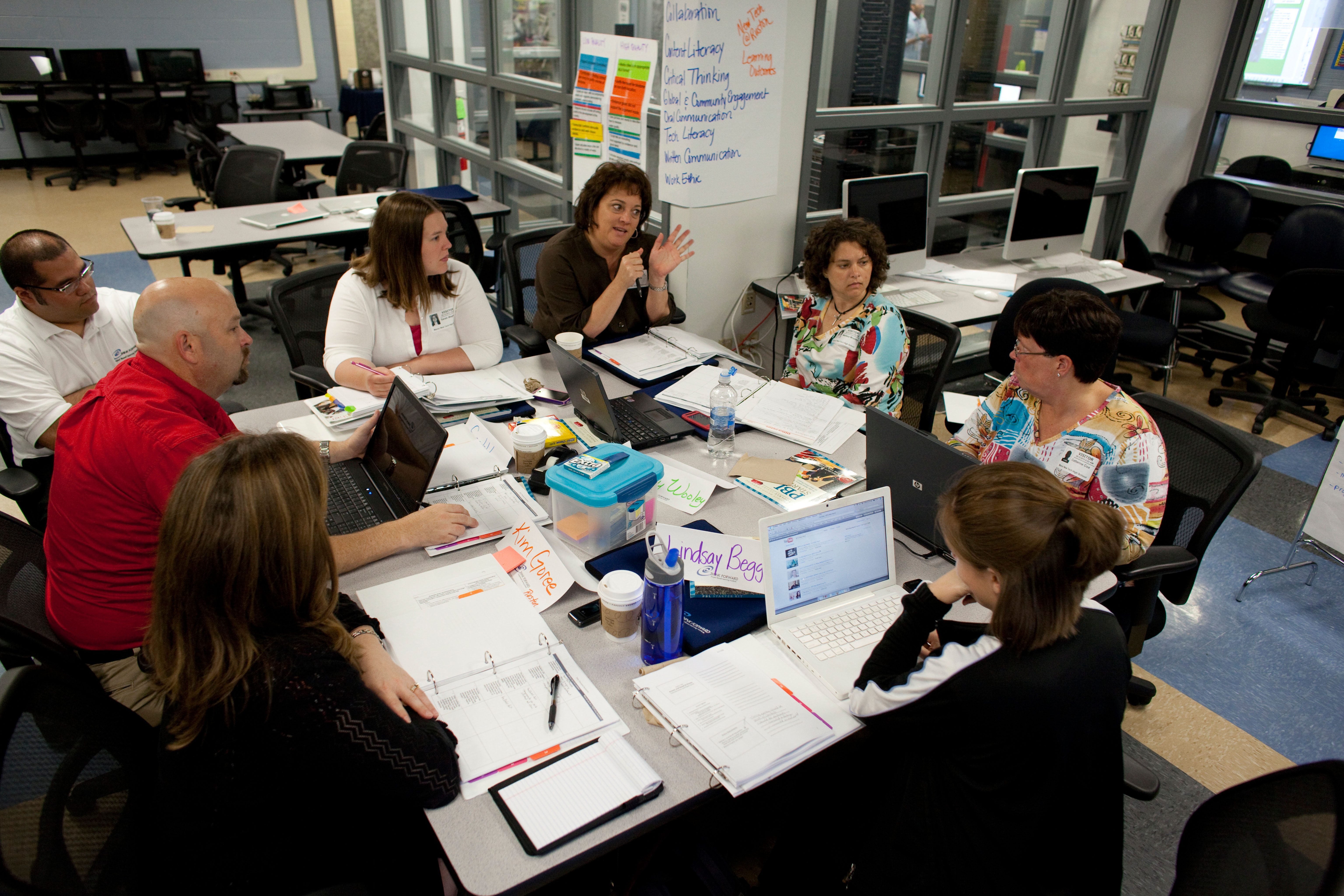
2 Weeks Before School: Resources and Materials
✅ Supply Inventory and Organization
Materials Management:
- Conduct complete inventory of lab supplies and equipment
- Create student supply lists if applicable
- Organize consumable materials by unit and frequency of use
- Label everything clearly for easy student and substitute access
- Plan for digital alternatives to physical materials when needed
✅ Technology Integration Setup
Digital Readiness:
- Test all classroom technology including projectors, computers, and tablets
- Set up learning management system (Google Classroom, Canvas, etc.)
- Prepare digital resource libraries organized by topic
- Create backup plans for technology failures
- Practice using new tools before introducing them to students
Where Sciesmic helps: All our resources come in both printable and digital formats. Upload reading articles to your LMS, use writing prompts for online discussions, or adapt our task cards for virtual learning environments.
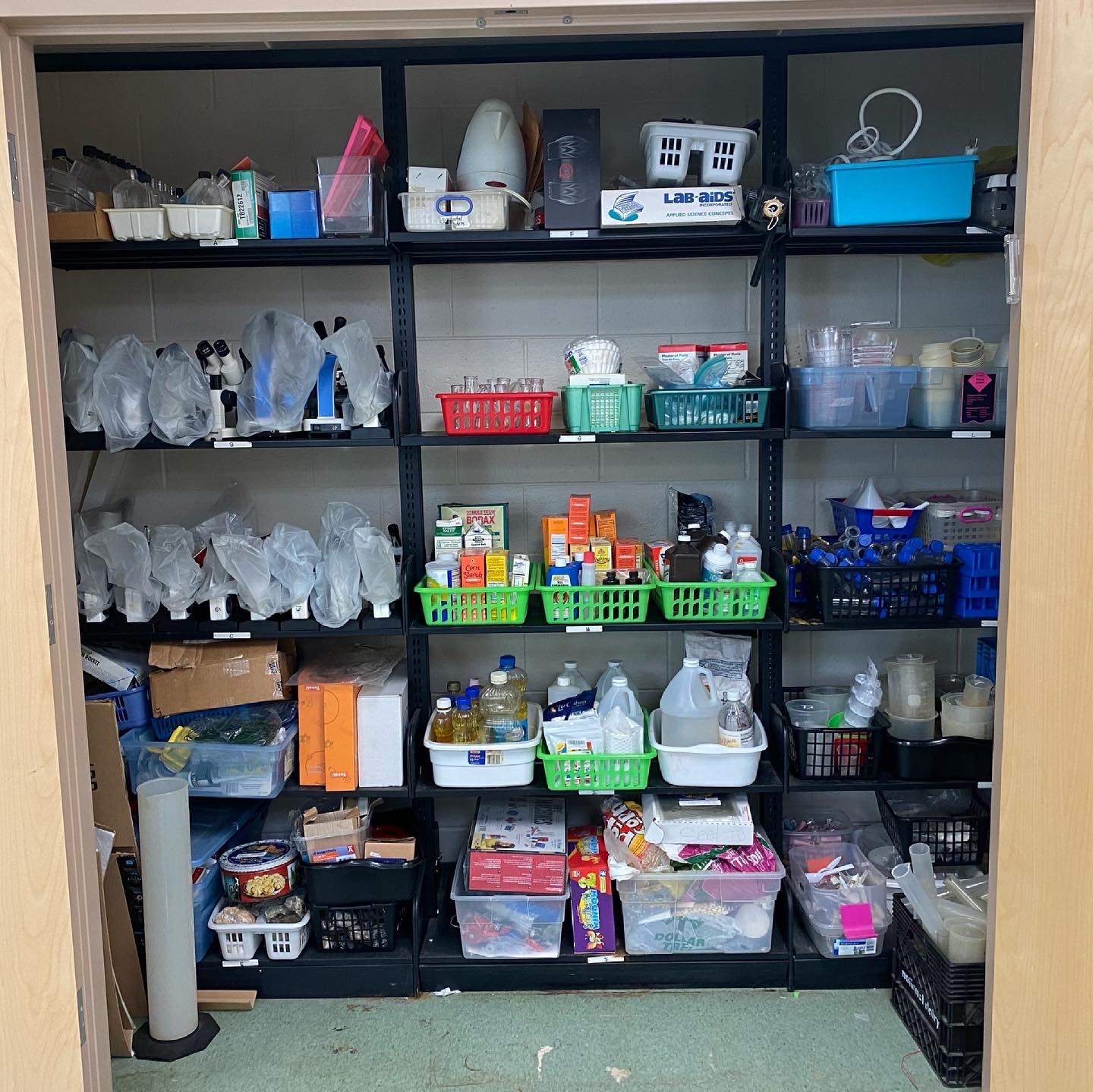
1 Week Before School: Student-Focused Preparation
✅ First Week Lesson Planning
Week 1 Priorities:
- Day 1: Community Building and expectation setting
- Day 2-3: Safety Training through engaging activities
- Day 4-5: Science Practices introduction and skill building
- Throughout: Assessment of prior knowledge and interests
Essential First Week Activities:
- Ice breakers that reveal student interests and goals
- Science autobiography writing to understand student backgrounds
- Lab safety training through hands-on stations
- Scientific practices introduction through simple investigations
- Classroom procedure practice in science-specific contexts
Where Sciesmic helps: Our writing prompts are perfect for first-week community building. Students can write about their science experiences, career interests, or responses to current science news—building relationships while assessing writing skills.
✅ Communication Systems
Parent and Student Connection:
- Prepare welcome letters explaining your teaching philosophy
- Set up communication tools (email, apps, websites)
- Create course syllabus with clear expectations
- Plan open house presentation highlighting hands-on learning
- Establish office hours and help procedures

First Day Essentials: Your Success Toolkit
✅ Immediate Needs Checklist
Must-Have Items Ready:
- Emergency procedures posted and practiced
- Class rosters with pronunciation guides
- Name tags or tent cards for immediate recognition
- Bell-ringer activity to start class smoothly
- Backup lesson plans for unexpected changes
- Student interest survey to guide future planning
✅ Engagement Strategies for Day One
First Impressions Matter:
- Start with wonder: Begin with an engaging demonstration or current science news
- Establish purpose: Help students see the relevance of science to their lives
- Build excitement: Share what amazing things you'll explore together
- Set expectations: Focus on growth, collaboration, and curiosity
- Create connections: Learn names and something interesting about each student
Ongoing Success: Resources for the Entire Year
✅ Weekly Planning Essentials
Sustainable Practices:
- Sunday planning sessions: Review and prep for the coming week
- Resource organization: Keep frequently used materials easily accessible
- Formative assessment: Build in daily checks for understanding
- Flexibility planning: Have backup activities for every lesson
- Self-care scheduling: Plan time for rest and rejuvenation
Where Sciesmic helps: Our weekly newsletter, "Science Teaching Insights," provides curated current events, teaching tips, and resource ideas delivered every Tuesday. Spend less time searching for content and more time focusing on your students.
✅ Professional Development Planning
Year-Long Growth:
- Identify skill areas for improvement (technology, differentiation, assessment)
- Join professional organizations like NSTA for ongoing support
- Connect with mentor teachers in your building or district
- Plan conference attendance or online professional learning
- Document successful practices for future reference and sharing
Month-by-Month Success Strategies
✅ August-September: Foundation Building
- Establish routines and safety protocols
- Build classroom community through collaborative activities
- Assess prior knowledge and adjust pacing accordingly
- Introduce key science practices through engaging investigations
✅ October: Momentum Maintenance
- Implement complex labs as students master procedures
- Integrate current events to maintain relevance and engagement
- Begin major projects that span multiple weeks
- Conduct first parent conferences with concrete examples of growth
✅ November-December: Deep Learning
- Focus on challenging concepts with multiple learning modalities
- Prepare for winter assessments through authentic practice
- Plan holiday break assignments that maintain engagement
- Reflect on first semester and adjust for spring improvement
Special Considerations for 2025
✅ Post-Pandemic Adjustments (Yes, still!)
Addressing Learning Gaps:
- Plan extra scaffolding for concepts that may have been missed
- Build in social-emotional support for anxious or overwhelmed students
- Prepare flexible learning options for various scenarios
- Focus on relationship building more than ever before
✅ Technology Integration
Digital Literacy Development:
- Teach responsible research and source evaluation
- Integrate AI literacy and appropriate technology use
- Plan for device management and digital citizenship
- Create backup plans for technology disruptions
Where Sciesmic helps: Our resources help students practice digital literacy through current science news analysis and evidence-based writing—skills they'll need for success in any learning environment.
Your Success Support System
✅ Sciesmic Resources for Every Need
Comprehensive Support:
- Lab Safety Stations: Engaging activities that build real safety awareness
- Reading Articles: Current, relevant content aligned to your curriculum
- Writing Prompts: Scaffolded activities that build science communication skills
- Task Cards: Flexible activities perfect for centers, early finishers, or review
- Data Analysis Practice: Real-world graphing and statistical reasoning
✅ Ongoing Professional Support
Beyond Resources:
- Weekly Newsletter: Curated teaching tips and current science news
- Professional Development: Webinars addressing real classroom challenges
- Community Connection: Network with other science teachers
- Implementation Support: Clear guides for using resources effectively
Emergency Preparedness: When Plans Change
✅ Substitute Teacher Success
Sub-Friendly Resources:
- Detailed lesson plans with step-by-step instructions
- Emergency activities that require minimal setup
- Clear safety protocols and emergency procedures
- Student helper assignments to assist substitutes
- Contact information for support when needed
Where Sciesmic helps: Our reading articles and writing prompts are perfect for substitute days. Clear instructions, engaging content, and built-in assessment tools ensure learning continues even when you're absent.
✅ Flexible Learning Options
Adaptability Planning:
- Hybrid-ready activities that work in-person or online
- Individual and group options for various scenarios
- Multiple assessment formats to accommodate different needs
- Clear communication plans for changing circumstances
Your Action Plan: Next Steps
✅ This Week (4 weeks out):
- Download our Back-to-School Starter Kit (safety activities, first-week lessons, parent communication templates)
- Complete lab safety inspection and equipment checks
- Begin curriculum mapping and pacing guide review
✅ Next Week (3 weeks out):
- Finalize first month lesson plans with engaging activities
- Set up digital systems and test all technology
- Order or organize supplies for fall units
✅ Two Weeks Out:
- Prepare welcome communications for students and parents
- Create emergency lesson plans for unexpected situations
- Practice first-week procedures and activities
✅ One Week Before:
- Final classroom setup and organization
- Prepare first-day materials and backup plans
- Review student information and special considerations
Remember: You're Ready for This
Starting a new school year in science education means joining students in the wonder of discovery while building the critical thinking skills they need for success. With systematic preparation, quality resources, and realistic expectations, you're set up for a year of meaningful learning and growth.
Ready to make this your best year yet?
[Register for Free Science Resources] - Everything you need for your first month
[Subscribe to Newsletter] - Free support delivered straight to your inbox
Here's to a year filled with discovery, growth, and those magical "aha!" moments that remind us why we became science teachers.


